What makes Britain British?
When Corpus Christi was chosen to feature in the new ‘Great Britain’ campaign, Varsity was inspired to look at alternative views of Cambridge in a bid to determine how we define ‘British’ today.
David Cameron recently launched a Great Britain campaign, promoting the country’s reputation abroad after a riotous summer attracted unfavourable publicity worldwide. Cambridge’s very own Corpus Christi was chosen as one of the poster boys.
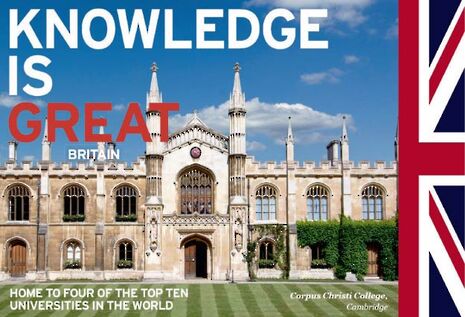
The collection of bold images has suffered criticism on both a creative and political level as well as receiving attention for its divisive definitions of ‘Britishness’. In a post-imperial country accustomed to absorbing global influences, it is intriguing to consider why one Cambridge college was deemed to say the most about our era’s concepts of ‘Great Britain’ and ‘knowledge’.
With this in mind, Varsity explored alternative, equally photogenic, views of Cambridge and asked contributors to describe what they believe is ‘British’ today.
'British' theatre
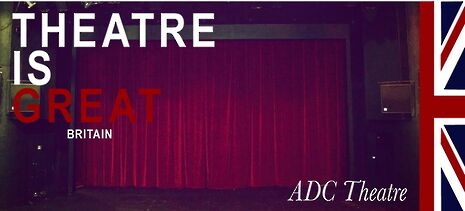
"In Michael Billington’s 2007 book, State of the Nation, he defended the idea of a distinctive British theatre, driven by the playwright responding to the world around him.
I love the fact that the Globe Theatre, instead of simply earning its keep by trotting out reruns of the Bard, presents offering like Howard Brenton’s Anne Boleyn; a glorious attempt to use an old model to tell a new and relevant story.
I love the fact that the Royal Court bookshop sells ‘mystery packs’ of six recent playscripts - a cheap way to get rid of their back catalogue but also a great chance to see the vast range of what is being written about.
I love the fact that British theatre privileges young people, often flogging tickets to under-25s for a fiver. Thankfully, the National recognises that we too are perfectly capable of judging whether things are getting boring and that, in the future, it’ll be up to writers from among us to ensure that things don’t stay that way."
Jack Belloli
'British' Architecture

"Built by one of Britain’s greatest and most well known architects, Sir James Stirling, the Seeley Historical Library plainly shows how long British architecture’s obsession with glass façades has existed.
Since Stirling, Britain’s most internationally recognised architects have been Norman Foster and Richard Rogers, both of whom use glass substantially as a main design feature, from the Gherkin to the Great Court at the British Museum and the Centre Pompidou."
Chloe Spiby-Loh
'British' Food
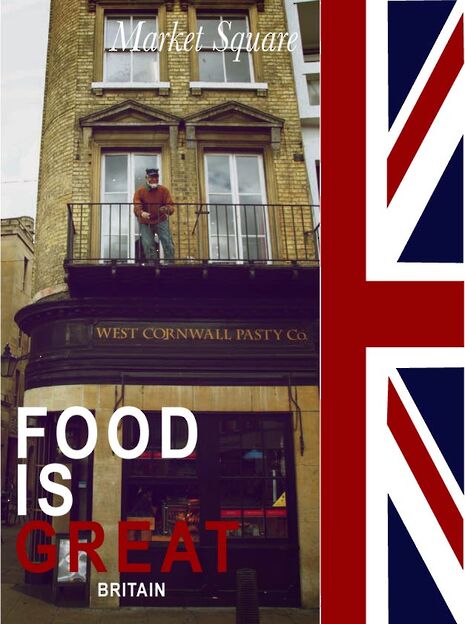
"British food is thankfully no longer the laughing stock of Europe.
Since spam and boiled beef, cooking in this country has extensively travelled the world embracing foreign techniques, exotic ingredients and diverse styles of eating in unique and dynamic ways.
As a testament to this success, an impressive total of 143 Michelin stars were awarded to British and Irish restaurants in the Michelin Guide 2011.
On home soil, since the 90s, modern British food has undergone a significant revival driven by the gastro pub, Slow Food movement and rise of the farmers’ market. No longer intimidated by poncy French chefs, British gastronomy has absorbed a multitude of influences to become a hybrid style of cooking that is as reflective of a multicultural, modern society as it is proud of British heritage."
Jessica Dunnithorne
'British' Art
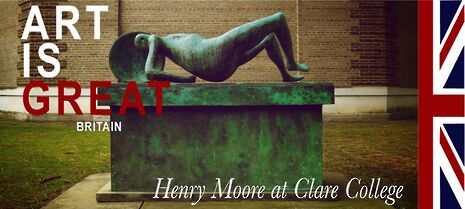
"The notion of ‘British Art’ raises more questions than it answers.
Is it the work of artists born in Britain, living in Britain, or simply dealing with British topics? Do any of these categories even denote an inherent ‘British-ness’ detectable in the art itself?
If anything, we might say that British artists are united by a common cultural state of mind: self-deprecating, ‘punk’, oppositional. Yet this urge to group art into national schools overlooks more local trends – for example, Glaswegian modernism – as well as movements which are clearly transnational or trans-historical in scope. As with other forms of ‘Britishness’ discussed here, the very idea is a slippery slope.
Moore’s sculptures [pictured] were heavily influenced by Greek mythology. To uphold certain artists as icons of contemporary British art - Damien Hirst’s status springs to mind – is to reductively ignore all the nuances and variety which make modern work interesting."
Zoe Large
'British' Fashion
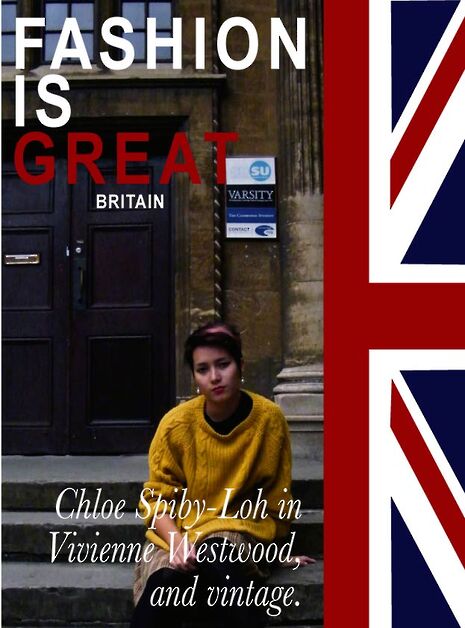
"Over the past few years, British fashion has evolved into something that has been quite hard to explicitly define or stereotype. From the eclectic yet bespoke designs of the late Alexander McQueen, to the punk inspired angst oozing from Vivienne Westwood, British fashion has developed a taste for mis-matching. For both of these designers, their inspirations have clearly come from the work of Britain’s artists, today this is more clearly seen in the streets of East London where McQueen’s and Westwood’s legacies are seen in all the boutique shops littering the high streets.
It would be wrong to place British fashion in the ‘designer clothing’ category since it is, in its very nature, the antithesis of the ‘label whore’. The failing economy has forced this growing vintage trend to develop. Through sourcing our clothes from vintage stalls we began to pair together incongruous patterns, styles and colours with a confident arrogance, leading to the look that has become quintessentially
British."
Chloe Spiby-Loh
'British' Literature
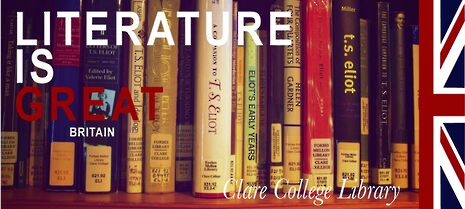
"Thomas Stearnes Eliot didn’t arrive in England until the age of 25. Yet his poems on spiritual emptiness, the English countryside and peaches manage to convey a wonderfully rich picture of Britain.
Kazuo Ishiguro, the Japanese emigré, similarly managed to capture Britishness in The Remains of the Day, his description of pre-war aristocratic life. ‘Britishness’ in literature remains something that is impossible to pin down, but these authors probably managed it because of, rather than despite, their immigrant status.
There has been a flourishing post-colonial trend in British literature which defies any concrete ideas of national boundaries. This is how British literature self-identifies: not with any concept of the ‘American novel’ or South American ‘Magical realism’, but a rich and diverse culture.
Writing is all about personal history: different backgrounds can only act to enrich that sprawling idea of ‘British literature’."
Freya Berry
'British' Tea
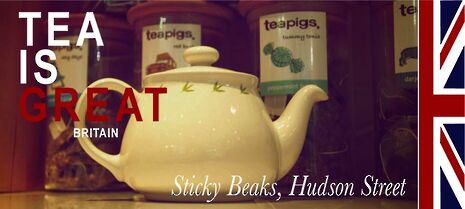
"Once a luxury only enjoyed by the upper classes, tea has become an integral part of British culture on every social level and in every community. From communal tea-breaks to respite from a game of cricket, tea has seeped into just about every aspect of our society. So much so that the National Grid is pumped with extra energy at the end of soap operas due to the increased demand on kettles throughout the country.
As the largest per capita tea-consuming country in the world, our cuppa culture has become a significant cultural export, a symbol of quintessential ‘Britishness’.
And despite the encroachment of the coffee industry, tea in all its forms and all its ethnicities remains a firm bastion of British identity. Tea remains a fundamental symbol of “Britishness”.
Just as in recent years food has re-hinged itself on British identity, so too the ritual of afternoon tea is constantly being revisited by modern chefs in innovative, retro ways. Our love affair will inevitably continue."
Jessica Donnithorne
 News / Cambridge academics stand out in King’s 2026 Honours List2 January 2026
News / Cambridge academics stand out in King’s 2026 Honours List2 January 2026 Interviews / You don’t need to peak at Cambridge, says Robin Harding31 December 2025
Interviews / You don’t need to peak at Cambridge, says Robin Harding31 December 2025 News / AstraZeneca sues for £32 million over faulty construction at Cambridge Campus31 December 2025
News / AstraZeneca sues for £32 million over faulty construction at Cambridge Campus31 December 2025 News / News in Brief: Maypole mentions, makeovers, and moving exhibits4 January 2026
News / News in Brief: Maypole mentions, makeovers, and moving exhibits4 January 2026 Features / “It’s a momentary expression of rage”: reforming democracy from Cambridge4 January 2026
Features / “It’s a momentary expression of rage”: reforming democracy from Cambridge4 January 2026









